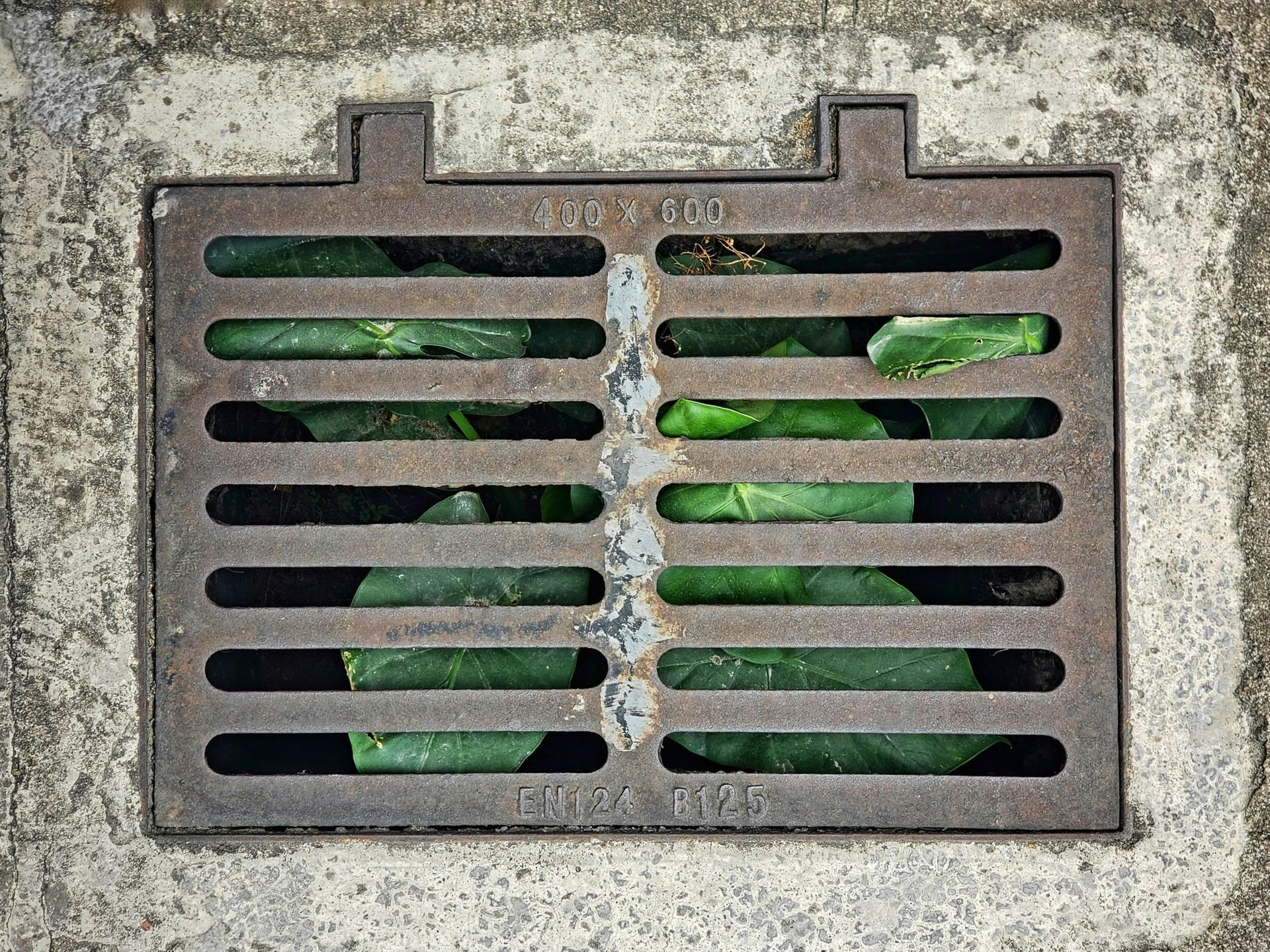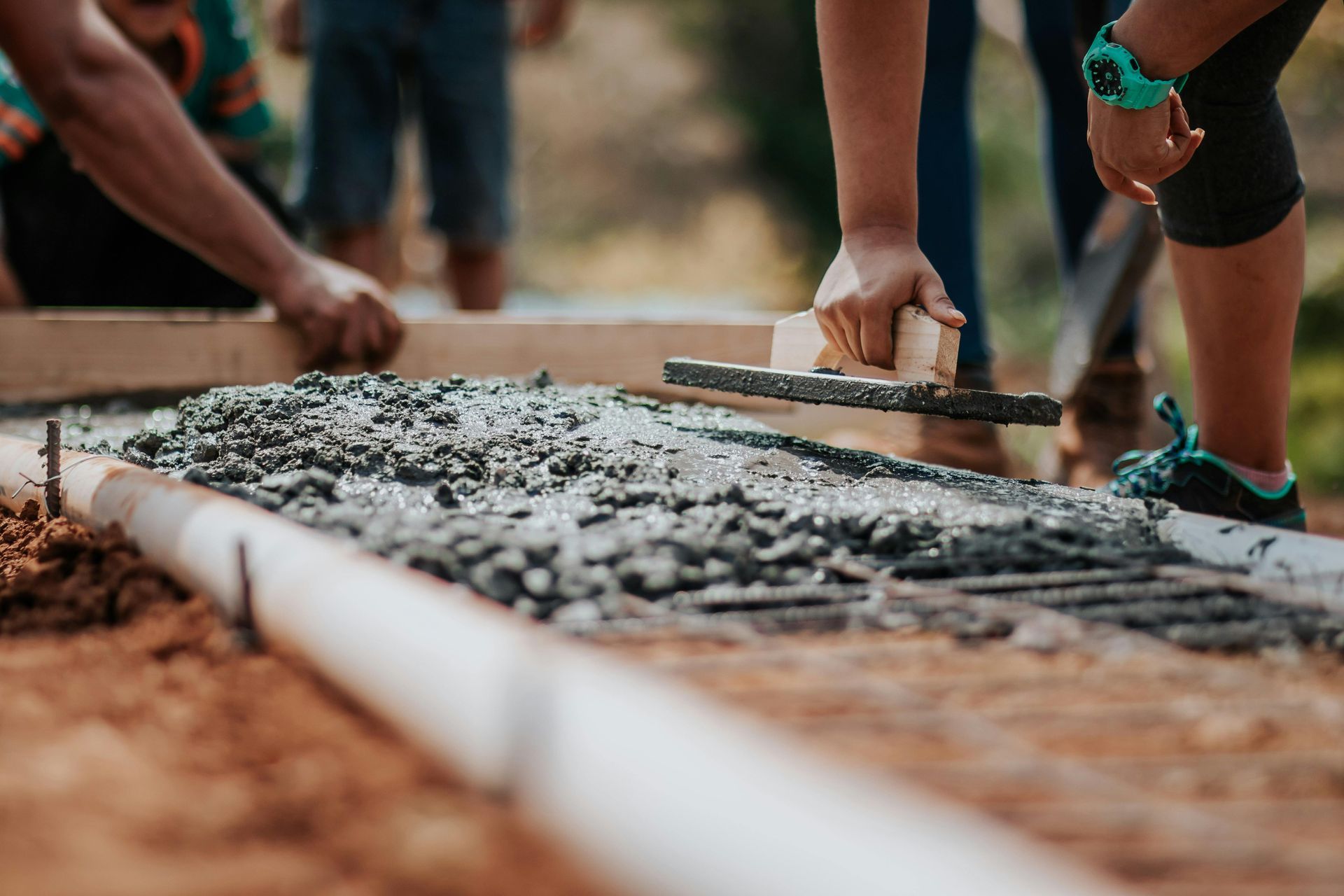Concrete Sealers: A Guide to Protection
You’ve invested in beautiful concrete for your driveway, patio, or walkway. It’s durable, functional, and enhances your home's curb appeal. But concrete, as strong as it is, is a porous material. Without protection, it’s vulnerable to water damage, stains, cracks, and the harsh effects of weather. Applying a high-quality sealer is the single most important step you can take to protect your investment and keep it looking great for years.
The question isn’t if you should seal your concrete, but which sealer you should use. The two main categories, penetrating sealers and surface (or topical) sealers, work in fundamentally different ways and offer distinct benefits. Choosing the right one depends on your specific needs, the location of the concrete, and your desired aesthetic.
At Liberty Concrete, we specialize in helping homeowners navigate this choice. Our experts assess your concrete and guide you to the perfect sealing solution. This guide will break down the differences between penetrating and surface sealers to help you understand your options.
The Purpose of Sealing Concrete
Before diving into the types of sealers, it's important to understand what a sealer actually does. A professional-grade sealer is designed to:
- Repel Water: This is the most critical function. By preventing water from soaking into the concrete, a sealer helps stop the destructive freeze-thaw cycles that cause cracks and spalling.
- Resist Stains: Sealers create a barrier that prevents oil, dirt, rust, and other contaminants from penetrating the concrete and leaving permanent stains.
- Prevent Cracking and Pitting: By keeping water and de-icing salts out, sealers protect the internal structure of the concrete, reducing the likelihood of surface damage.
- Enhance Appearance: Many sealers can enhance the color of your concrete, providing a rich "wet look" or a subtle sheen that revitalizes its appearance.
- Make Cleaning Easier: A sealed surface is less porous, so dirt and spills sit on top, making them much easier to wash away.
Penetrating Sealers: The Invisible Shield
As the name suggests, penetrating sealers work by soaking deep into the pores of the concrete. They don't form a film or coating on the surface. Instead, they react chemically within the concrete to form a hydrophobic (water-repelling) barrier. The most common types are silanes, siloxanes, and siliconates. Think of a penetrating sealer as creating an invisible, breathable shield from the inside out. The surface of the concrete looks and feels largely unchanged, but water will bead up and roll off instead of soaking in.
Benefits of Penetrating Sealers
- Natural Appearance: Because they don't form a surface film, penetrating sealers provide a flat, matte finish that doesn't alter the natural look or texture of your concrete. If you love your concrete's current appearance, this is an excellent choice.
- Excellent Durability: Since the protection is inside the concrete, it won't peel, flake, or wear away from traffic. They typically last much longer than surface sealers, often for 5-10 years or more before reapplication is needed.
- Breathability: These sealers allow moisture vapor trapped inside the concrete to escape. This is crucial for preventing issues caused by trapped moisture, especially in climates with freeze-thaw cycles.
- Superior Freeze-Thaw Protection: By preventing water from getting into the concrete in the first place, penetrating sealers offer the best defense against the cracking and spalling caused by freezing water.
- Slip Resistance: Because they don’t change the surface texture, they don’t make the concrete slippery, which is a key safety consideration for walkways and pool decks.
Best Applications for Penetrating Sealers
The experts at Liberty Concrete often recommend penetrating sealers for:
- Driveways: They offer robust protection against water and de-icing salts without becoming slippery.
- Sidewalks and Walkways: Their durability and slip-resistance make them ideal for high-traffic footpaths.
- Pool Decks: They provide excellent water repellency and maintain a safe, non-slip surface.
- Anywhere a natural, matte finish is desired.
Surface Sealers: The Protective Film
Surface sealers, also known as topical coatings, work by forming a protective film on top of the concrete. They create a physical barrier between the concrete and the elements. The two most common types used in residential settings are acrylic and epoxy sealers. These sealers can significantly change the appearance of your concrete, often providing a gloss or semi-gloss finish that enhances its color and character.
Benefits of Surface Sealers
- Enhanced Appearance: Surface sealers are the go-to choice for aesthetic enhancement. They can provide anything from a subtle satin sheen to a high-gloss, "wet look" that deepens and enriches the color of the concrete, especially stamped or colored concrete.
- Excellent Stain Protection: The surface film provides a superior barrier against oil, grease, and chemical spills, making them ideal for garage floors and workshop areas.
- Easy to Clean: The smooth, non-porous film makes sweeping and mopping up spills incredibly easy.
- Cost-Effective: Acrylic sealers, the most common type of surface sealer, are generally less expensive upfront than high-end penetrating sealers.
Best Applications for Surface Sealers
Our team at Liberty Concrete typically suggests surface sealers for:
- Decorative Concrete: Stamped patios, colored concrete walkways, and other decorative finishes benefit greatly from the color enhancement of an acrylic sealer.
- Garage Floors: Epoxy coatings (a heavy-duty type of surface sealer) provide ultimate protection against hot tire marks, oil, and chemical spills.
- Patios and Entertainment Areas: They provide great stain protection and an attractive finish perfect for outdoor living spaces.
- Anywhere you want to add shine and deepen the color of the concrete.
Making the Right Choice with Liberty Concrete
So, which sealer is right for you? The answer depends on a careful evaluation of your priorities.
- If your primary goal is long-lasting, invisible protection against water and salt damage, a penetrating sealer is likely the best choice.
- If your primary goal is aesthetic enhancement, stain resistance, and achieving a "wet look" or gloss finish, a surface sealer is the way to go.
This is where professional guidance becomes invaluable. The team at Liberty Concrete doesn’t just apply a one-size-fits-all product. We start with a thorough assessment of your concrete, considering factors like:
- Location: Is it a driveway exposed to de-icing salts, or a decorative patio that needs stain protection?
- Condition: Is the concrete new or old? Does it have existing damage that needs to be addressed first?
- Your Goals: Are you looking for a natural finish or a decorative sheen?
Proper surface preparation is also critical for any sealer application. The concrete must be perfectly clean and dry for the sealer to bond correctly. Our professional process ensures that your concrete is meticulously prepared before we apply the sealer, guaranteeing a durable, long-lasting finish. Protecting your concrete is one of the smartest maintenance decisions you can make. It safeguards your investment, enhances your home’s beauty, and prevents costly repairs down the road. Don't leave the choice to chance.
Are you ready to protect and beautify your concrete? Contact Liberty Concrete today for a professional consultation. We’ll help you choose the perfect sealer and provide an expert application for lasting results.
Meta Information
Meta Title: Concrete Sealers: Penetrating vs. Surface | Liberty Concrete
Meta Description: Learn the difference between penetrating and surface concrete sealers. Liberty Concrete helps you choose the right protection for your driveway or patio.
You might also like
Liberty Concrete | Blog


